Common Questions About Pool Plumbing Leaks: Expert Answers
If your pool is losing water, it's easy to jump to the worst-case scenario: a dreaded leak in the plumbing lines. In our experience dealing with countless concerned pool owners, we can tell you that while plumbing leaks do occur, they're not as common as you might think. In fact, at Aaron’s Leak Detection, we find that only about 20% of the pools we test annually have actual plumbing issues.
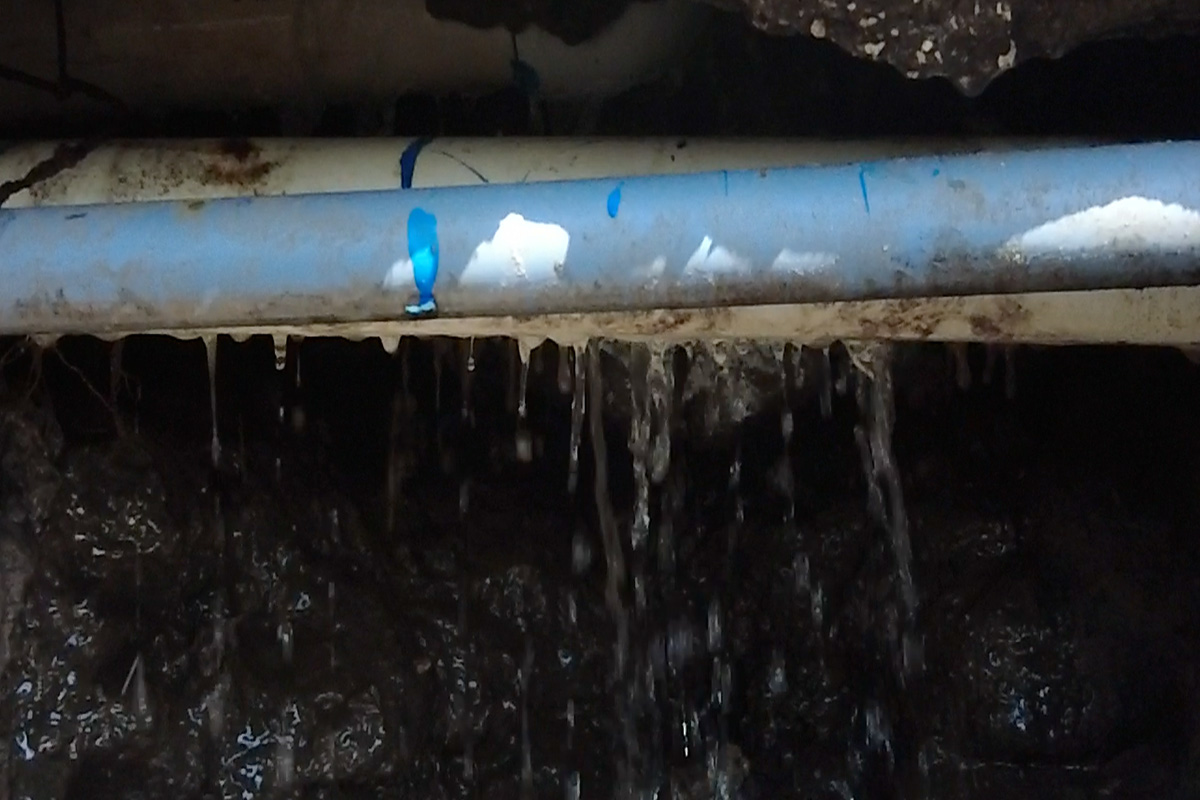
The rest? Often something simpler and less invasive.
In our years of experience we’ve seen it all—from minor drips to more complex problems. This post will dive into some of the most frequently asked questions about pool plumbing leaks. Our goal is to arm you with knowledge so you can make informed decisions. Keep in mind, leak detection can get nuanced, and DIY attempts sometimes lead to frustration and wasted time.
That's where Aaron’s Leak Detection comes in: we use precise methods to find every leak without the guesswork.
Let's tackle these FAQs head-on.
FAQ 1: If There's a Leak in the Plumbing Line, Wouldn't My Pool Only Leak When the Pump Is On?
This is a common assumption, and it's not entirely wrong—but it can be misleading.
Yes, sometimes leaks only appear when the pump is running, but there are three main scenarios to consider:
Scenario 1:
A leak in your pool equipment.
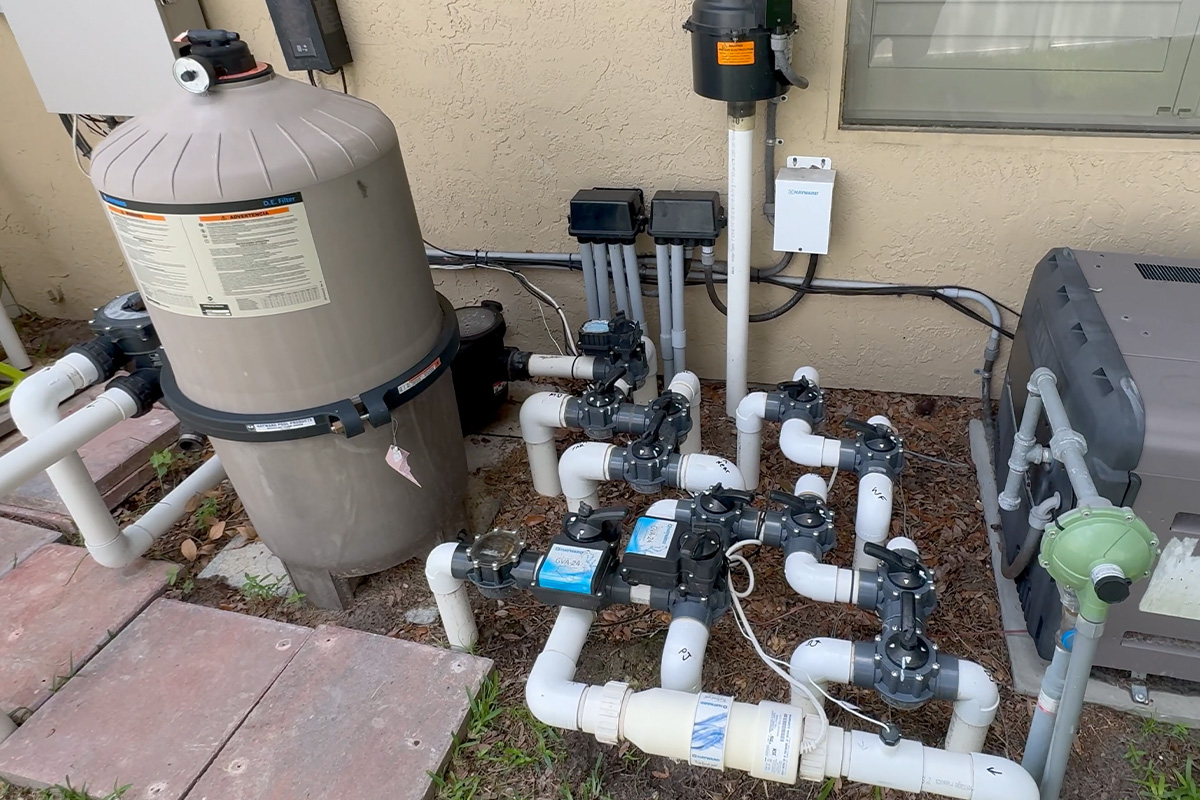
Most equipment, like pumps, filters, and heaters, only experiences positive pressure when the pump is on because most of the time this equipment is above your pool water level. Therefore, they'll only leak when the pump is running.
Here's a quick DIY check you can do in 10-15 minutes:
- On a dry day, clear away any leaves or debris around the base of your equipment to create "white space." You want to be able to see where the bottom of your equipment touches the concrete pad or ground.
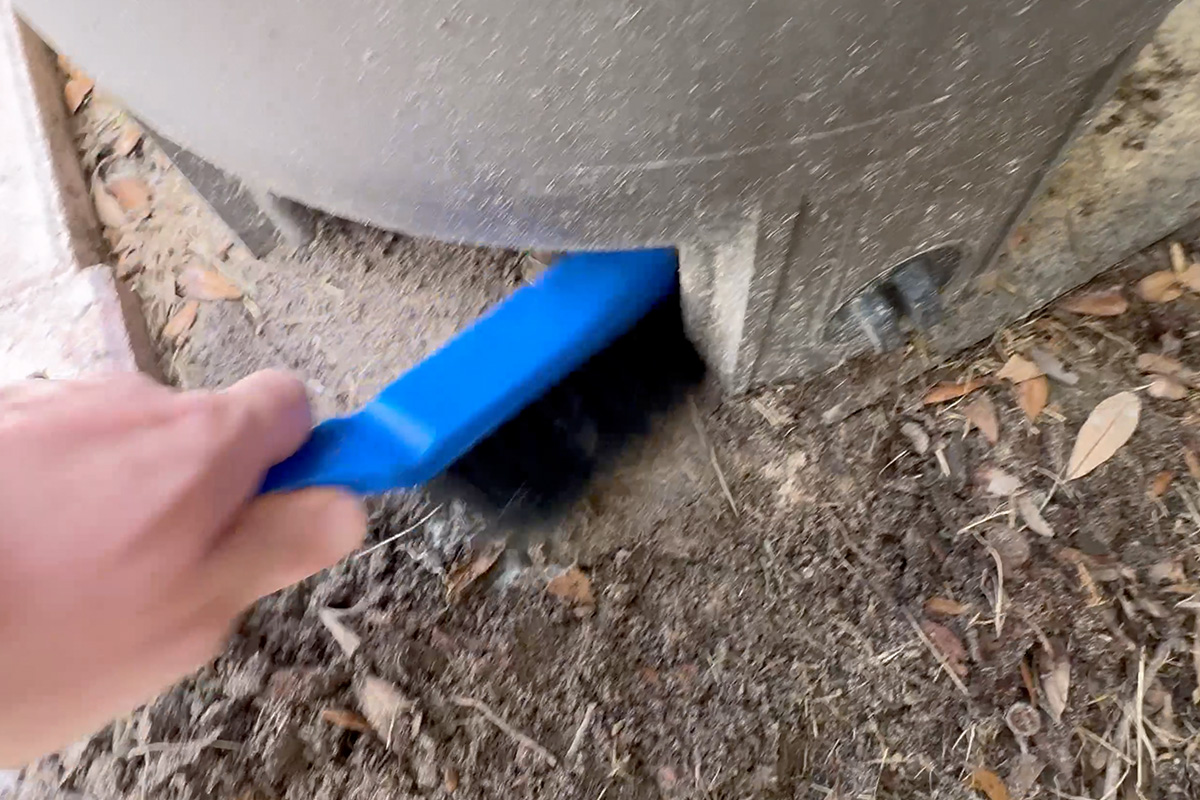
- Run the pump for 5-10 minutes.
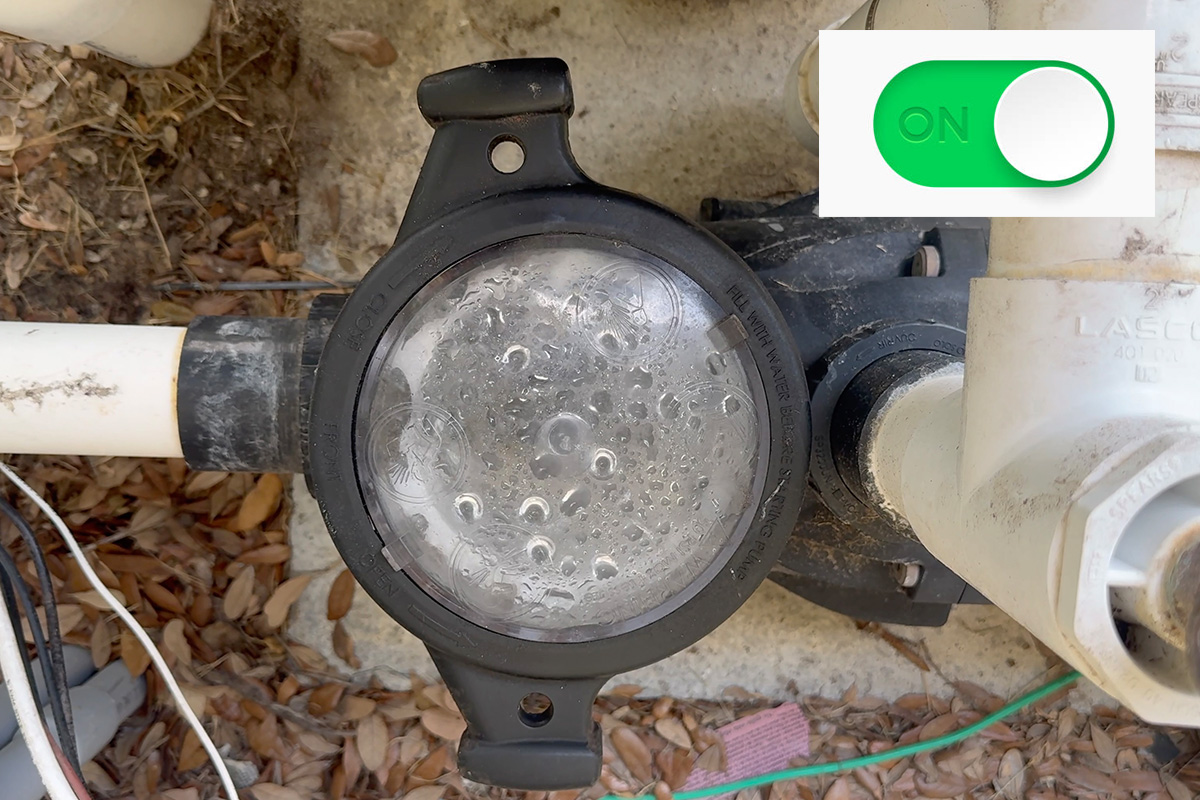
- Inspect the area around the equipment for any moving water. Even a tiny stream can add up to significant loss, especially in smaller pools or if the pump runs long hours.
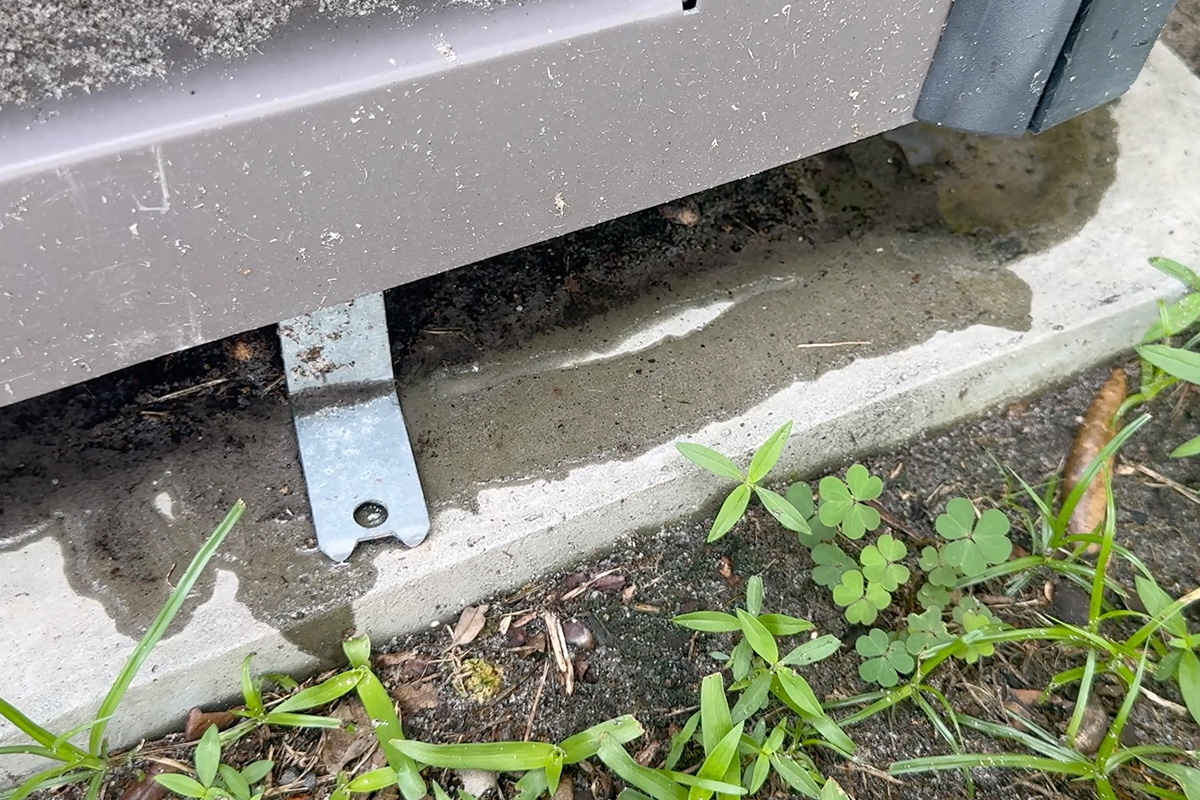
If you find water running out from the bottom of any of your equipment, simply use chlorine test strips to confirm it's chlorinated. If so, it's your pool water. This confirms it's a leak that will cause your pool to lose water when the pump is running. Contact your local pool store or pool service professional to repair your equipment.
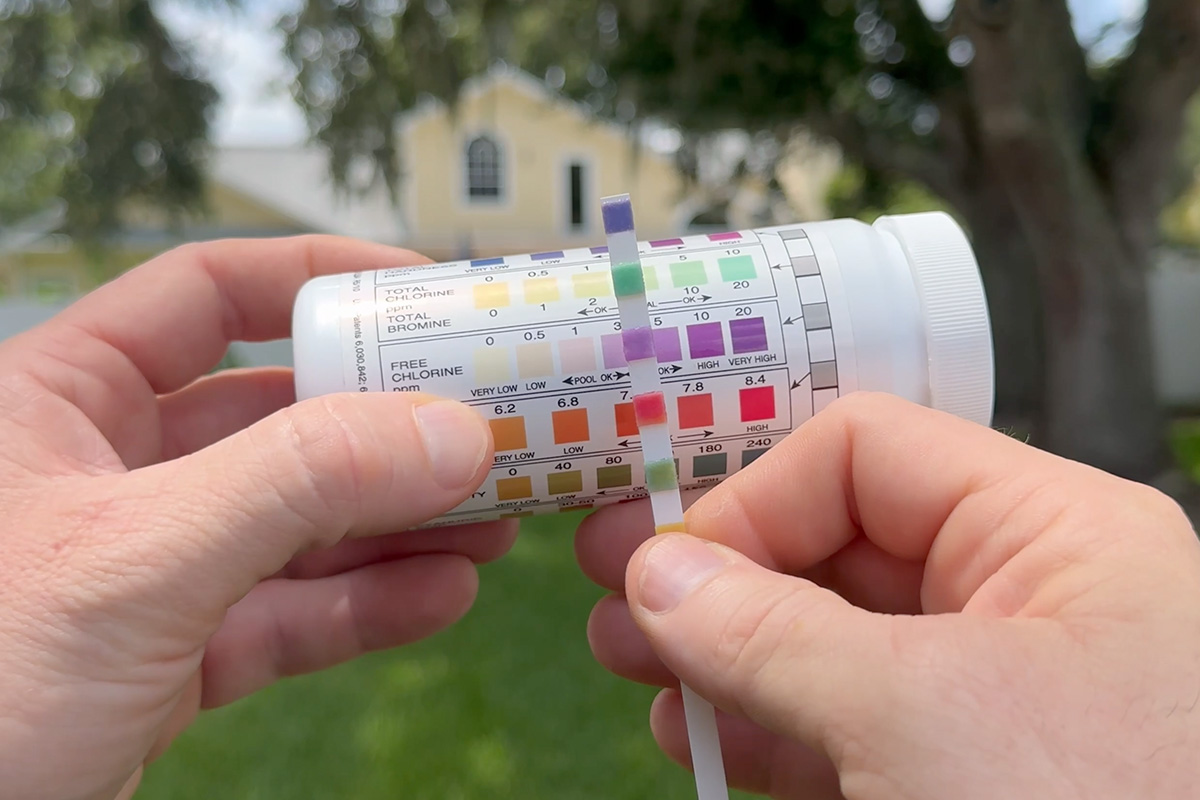
If it's not chlorinated (assuming your pool water is) - good news - it's not from your pool. Electric heaters can often produce condensation that can looks like a leak, but this water will not test positive for chlorine. The non-chlorinated water may also be from rain, gutters or sprinklers.
Scenario 2:
Leaks in spa plumbing or features like fountains, deck jets, or solar panels that only activate when the pump is on.
This can be tricky because running the pump exposes new areas, like spa spillovers, to water.
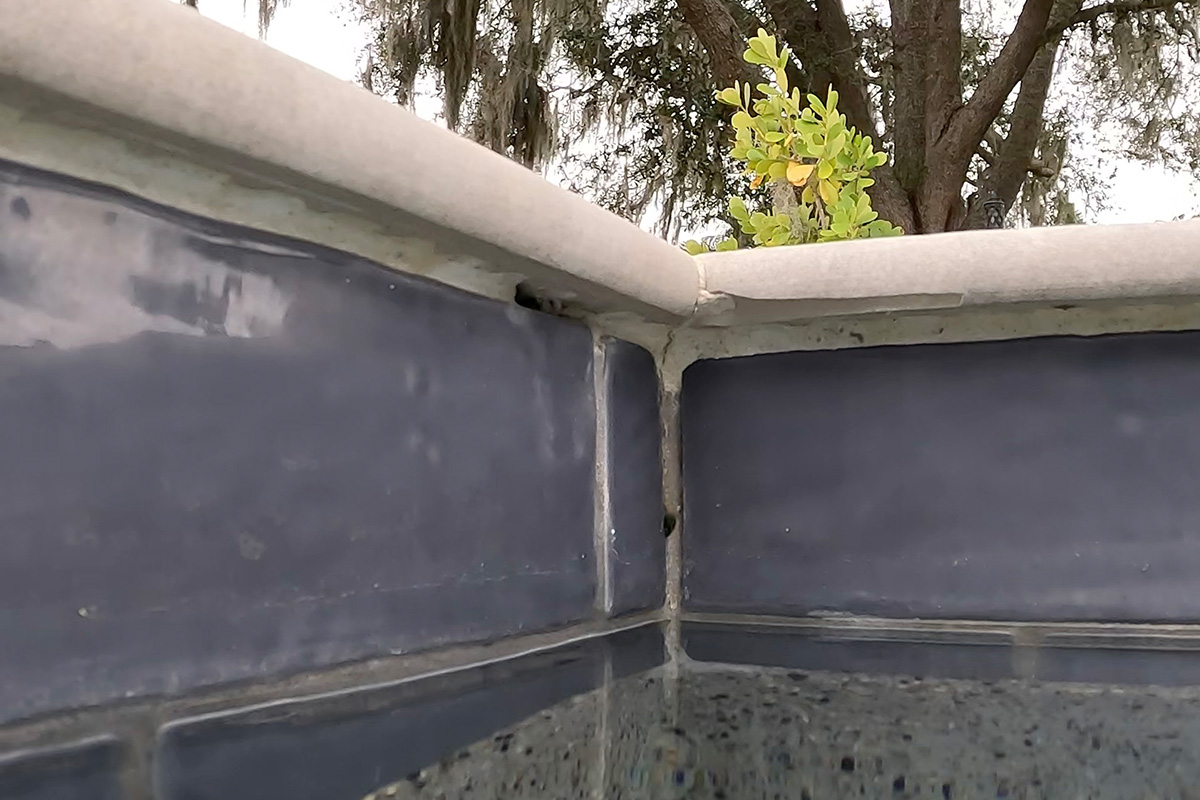
So, what seems like a pump-dependent plumbing leak could actually be in the spa structure or another feature.
Scenario 3:
A tiny crack in a pool jet line.
Most plumbing sits below water level, under constant pressure from the pool's weight—pump on or off. But in very rare instances, a minuscule leak might only become noticeable under the extra pressure from a running pump.
We've seen it, but it's not the norm.
In 99.9% of cases, a pool owner with a leaking pool just wants the leak found and resolved. If you're losing water, a full professional leak detection is the best way to identify and fix all issues comprehensively.
FAQ 2: How Do You Find a Plumbing Leak?
Once we've confirmed a plumbing line leak through initial testing, we bring in a specialized Plumbing Leak Specialist—at no extra cost.
Pinpointing these leaks is a blend of art, science, and experience. Our experts use advanced equipment, careful acoustic listening, and proven techniques to zero in on the exact location of the leak.
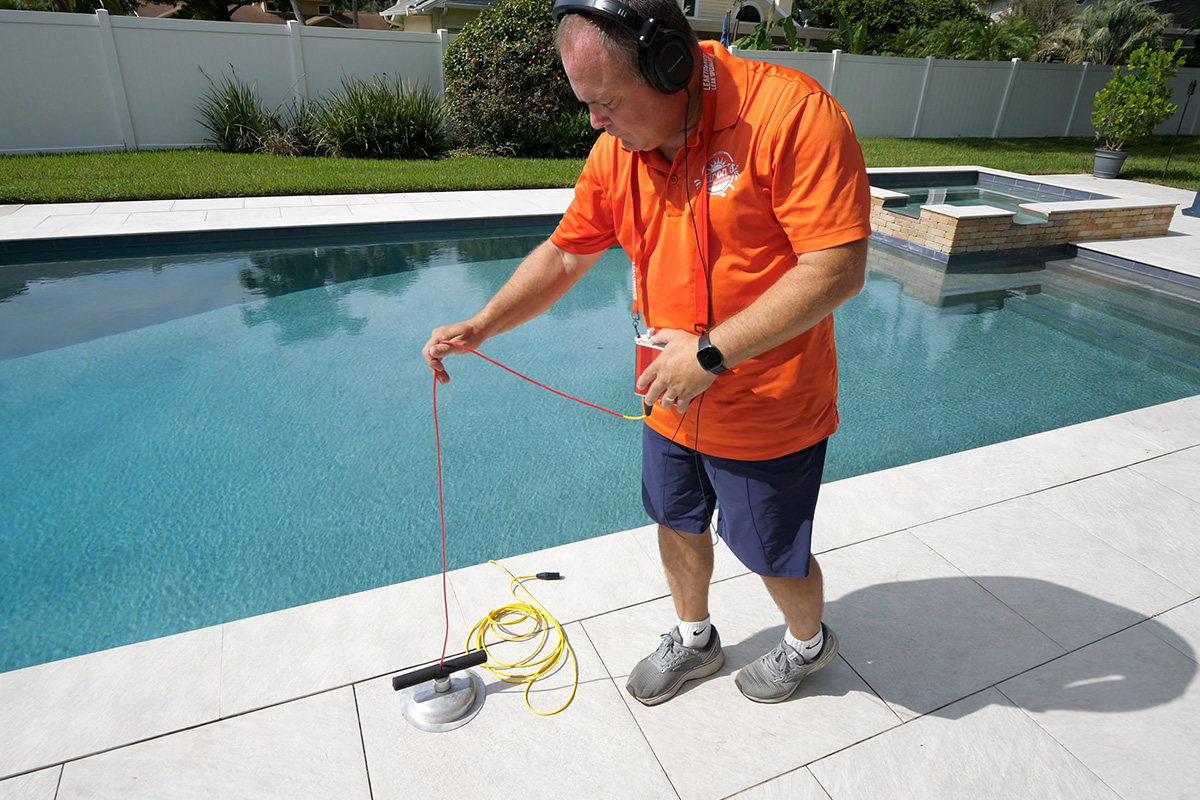
The process is thorough: they'll mark the location clearly and document it with photos and/or videos for your records. This ensures repairs are precise, minimizing disruption to your yard or pool area. No more digging blindly—our methods save time, money, and hassle.
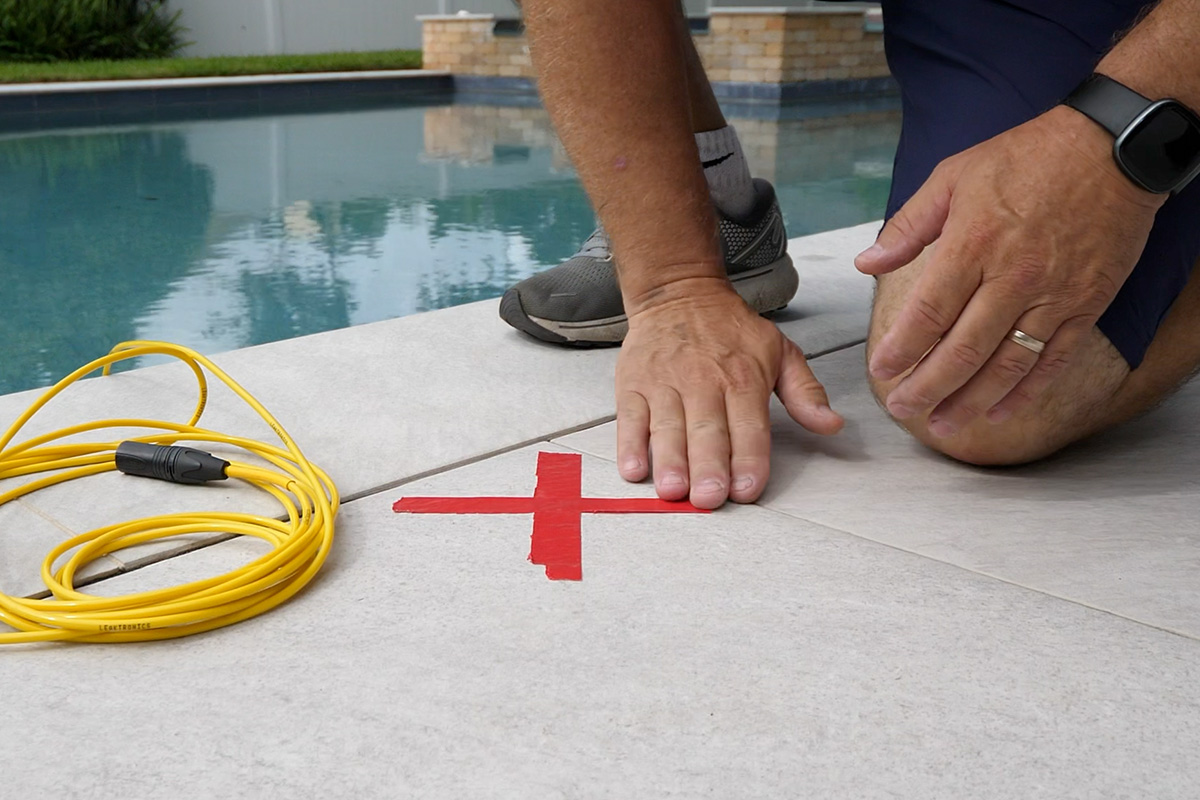
FAQ 3: What If My Plumbing Has Multiple Leaks?
Multiple leaks in one line aren't everyday occurrences, but they can happen, especially in older systems. Rest assured, we're equipped to handle it. Our specialist will often locate all leaks during the initial pinpointing. However, sometimes a dominant, "loud" leak can mask smaller ones. In those rare cases, after repairing the main issue, our team pressure-tests the line again. If additional leaks are found, we'll pinpoint them too.
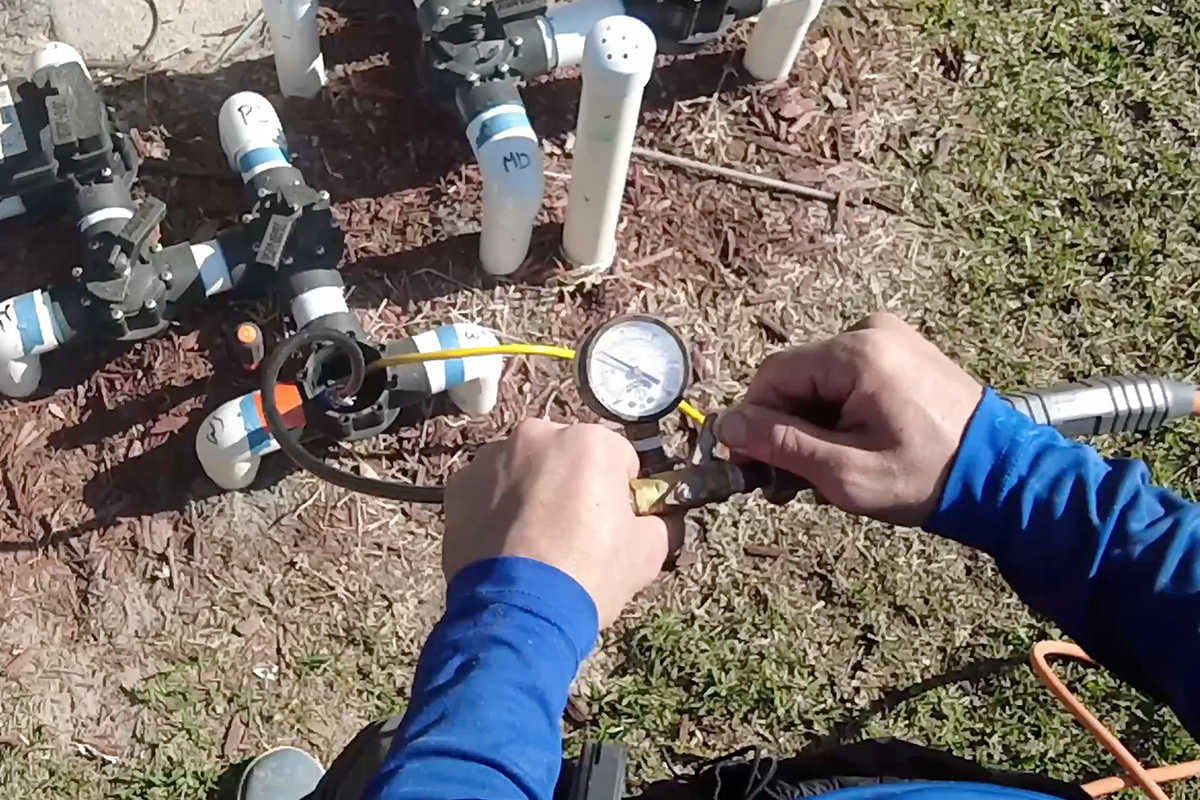
This iterative approach guarantees everything is addressed, preventing future surprises.
In conclusion, we hope these answers have demystified pool plumbing leaks and alleviated some of your concerns. Remember, early detection is key to avoiding bigger problems down the line. If you have more questions or suspect a leak, don't hesitate to contact Aaron’s Leak Detection. We're here to help keep your pool in top shape—we look forward to serving you!
Pool leak? Relax! We’ll handle it.
If you’re seeing signs of water loss, don’t stress. Let our friendly, honest pros guide you to the pool leak solution that’s right for you.
